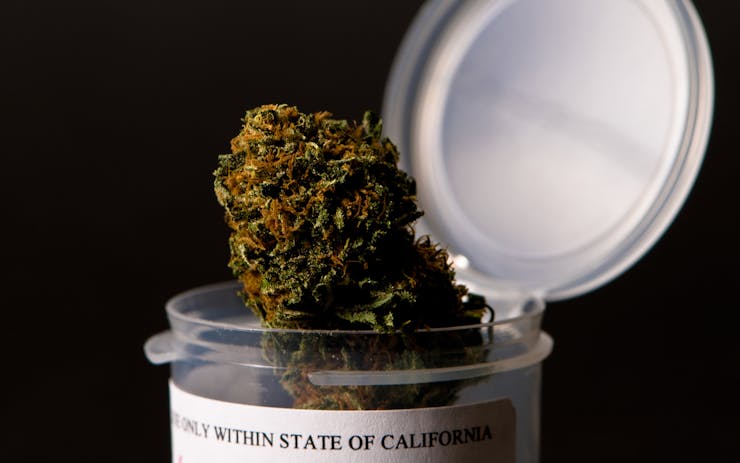California lawmakers are proposing a temporary tax cut for cannabis in an effort to undercut the illicit market and encourage the state’s transition to legal, regulated sales.
On Thursday, Assemblymembers Tom Lackey (R-Palmdale) and Rob Bonta (D-Oakland) announced Assembly Bill 3157, which for a period of three years would reduce the state excise tax on cannabis from 15% to 11% and suspend a separate tax on cannabis cultivation. The bill’s co-authors include Assemblymembers Ken Cooley (D-Sacramento), Reggie Jones-Sawyer (D-Los Angeles), and Jim Wood (D-Healdsburg).
The changes would reduce consumer prices by 9%, according to an outside analysis of the bill.
“As someone who spent 28 years in law enforcement, I know how sophisticated California’s black market for cannabis has become,” Lackey said in a statement announcing the legislation. “Criminals do not pay taxes, ensure customers are 21 and over, obtain licenses or follow product safety regulations. We need to give legal businesses some temporary tax relief so they do not continue to be undercut by the black market.”
California’s legal adult-use market went live in January, but huge swaths of the industry are reportedly still operating without mandatory state licenses. Officials have recently made moves to crack down on unlicensed businesses, but the scope and resilience of the state’s illegal market is likely to make enforcement a challenge.
AB 3157 would take a more market-based approach, explained Beau Whitney, a senior economist at data analytics company New Frontier Data, which conducted an analysis of the bill.
“By lowering the excise tax and postponing the cultivation tax, it will lower the overall price for consumers at the register, which will also reduce the differential between illicit and legal prices,” Whitney said in a statement. “Reducing this gap is critical to making the legal market more competitive against the illicit market and more attractive for consumers.”
According to New Frontier Data’s analysis, the bill would reduce prices for consumers by 9% compared to current tax rates.

(Courtesy of Assemblymember Tom Lackey)
Among legal adult-use cannabis states, California currently has one of the highest effective tax rates in the nation. State cannabis taxes—including excise tax, a tax on cultivation, and sales tax—together come to about 25%, and local jurisdictions can levy additional taxes on top of that. In some parts of the state, cumulative tax rates are as high as 45%, according to a September 2017 report from Fitch Ratings.
“California will only become the latest of the states to contend with black market staying power,” the report found, adding that “California’s high taxes are likely to keep black market prices competitive into the long term.”
Shop highly rated dispensaries near you
Showing you dispensaries nearNot only will lower taxes help lay siege to the illicit market, the bill’s co-authors say. Pointing to evidence from other legal-cannabis states, they note that lower tax rates could actually end up increasing overall tax revenue by increasing business at licensed shops.
“Washington saw an exponential growth in cannabis tax revenue after it simplified its tax structure and reduced its rates—increasing from $13.4 million in June of 2015 (final month of initial tax rate) to $33.1 million in April of 2017,” according to Lackey’s office.
Some local governments in California have considered similar moves as frustration grows with the state’s illicit market. Last month, the Berkeley City Council cut its local cannabis tax in half, down to 5%.
“We’ve been screaming at these guys for three or four years to really watch out for the tax rate,” San Francisco cannabis Matt Kumin told Leafly after the Berkeley vote, “because it’ll make the difference between the success of this regulatory environment or its failure.”
The full text of AB 3157, as provided by Lackey’s office, is embedded below:
California Assembly Bill 3157 (Lackey & Bonta) by Ben Adlin on Scribd






